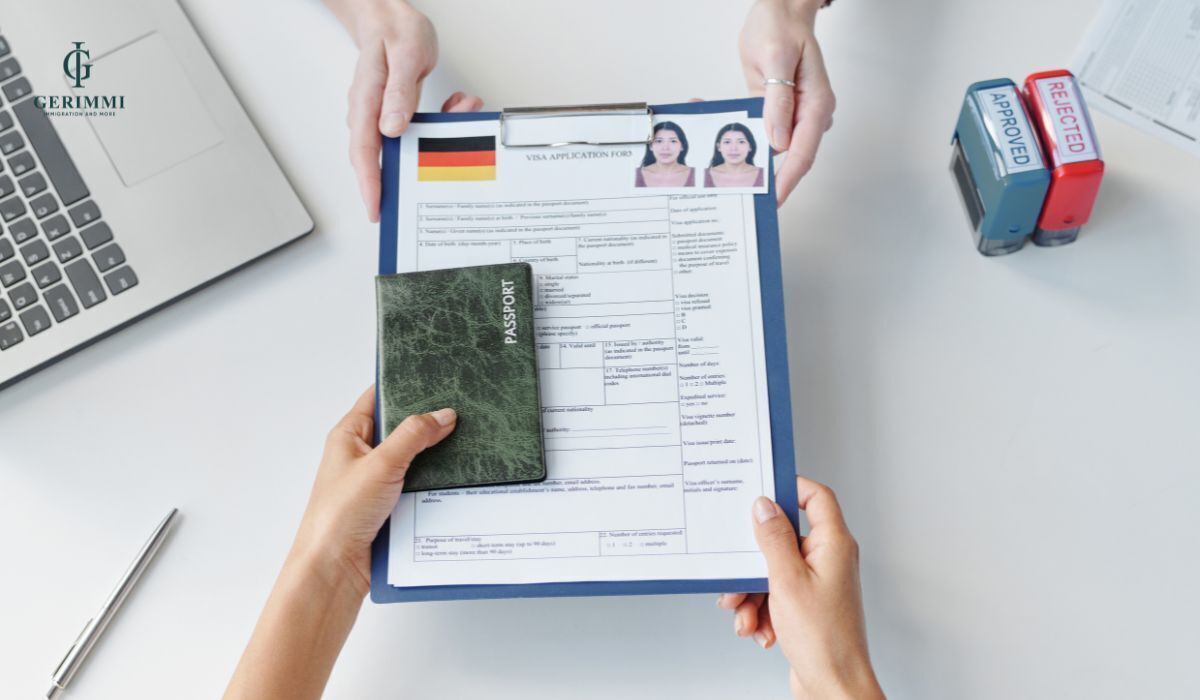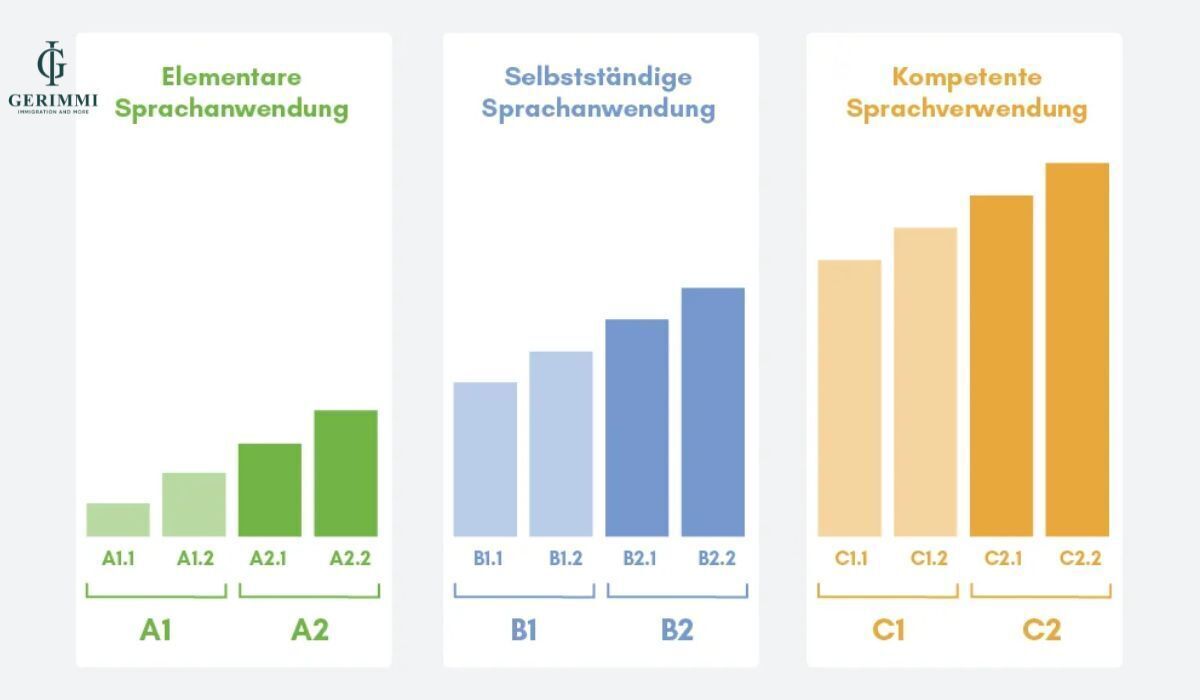In recent years, study in Germany has become the top choice of thousands of Vietnamese students thanks to its world-class education quality, tuition-free policy, and attractive job and settlement opportunities in Europe. The following article will help you answer the question:"Why study in Germany?"and fully graspPros and cons of this journey.
I. Why many international students are interested in Germany as a study destination
- Low tuition fees, high quality degrees
Germany is famous for its policy of free or reduced tuition at most public universities, even for international students. This helps international students save significantly compared to countries like the US, UK or Australia. At the same time, degrees from German universities are globally recognized and highly valued in the eyes of employers.
- Large Vietnamese student community
Germany is one of the countries with Largest number of Vietnamese students in Europe, creating a strong support network. Vietnamese student associations are active, helping new students with housing, procedures, studying and integrating into their new life.
- Learning in English is becoming more and more popular
Although Germany is not an English-speaking country, many bachelor's and master's programs are now taught entirely in English - especially in fields such as economics, engineering, data science, public health, etc. This makes it easier for international students who do not know German at the beginning.

II. Why choose Germany for studying abroad?
1. Top quality education
Germany is home to many prestigious universities such as TU Munich, Heidelberg, RWTH Aachen... which are prominent in the fields of engineering, medicine and research. The rigorous training model, focusing on practice, helps students master knowledge and easily adapt to real-life work requirements.
2. Tuition-free or very low tuition fees
In Germany, students only have to pay an administrative fee (Semesterbeitrag) from 150-350 EUR/semester. This fee includes free travel within the region. This is why Germany is considered a "cheap but high-quality" country for international students.

3. Job opportunities and post-graduation settlement
During study time, students can work part-time 120 full-time days or 240 part-time days/year, enough to cover basic living expenses. After graduation, you have the right to stay in Germany to find a job for 1.5 years. If you find a job that suits your major, you can switch to a work visa and have the opportunity for a long term settlement.
4. Safe and modern learning and living environment
Germany is among the countries with high human development index and living standards. Major cities have efficient, safe and clean public transport systems. The government also provides a wide range of welfare services for international students.

5. Central location in Europe
With a central European location, you can easily move to other countries like France, Switzerland, Netherlands, Austria… in just a few hours by train or cheap plane. This not only helps you broaden your knowledge but also connect with many different cultures during your studies.
II. Challenges Vietnamese students may face when studying in Germany
1. Language barrier
Although there are many programs taught in English, most of life, administrative procedures, hospitals, renting houses, etc. are conducted in German. This puts pressure on new students, especially if they have not studied German properly before. In addition, many fields of study (especially medicine, pharmacy, law) still require a level of B2 - C1 German.
2. Complicated visa and paperwork procedures
International students need to prepare their documents carefully, including financial proof, language certificate, invitation letter, academic documents, etc. Each type of visa has different requirements (APS, Studienkolleg, university study, etc.). The visa application process can last from several weeks to several months, and can even be rejected if not properly prepared.

3. Difficulty in adapting at the beginning
Vietnamese students are often used to passive learning, while Germany requires critical thinking, active learning and self-study. In addition, the cold weather, different living habits and lack of family and friends make many students feel lonely or psychologically shocked in the first 3-6 months.
4. High living costs in major cities
In cities like Munich, Frankfurt or Hamburg, rent can account for more than 50% of total monthly living expenses. If you don’t find a dormitory early, you’ll have to rent somewhere else for 400-700 EUR/month. In addition, medical expenses, mandatory insurance, and train tickets in states that don’t provide student support also add to the total cost.
IV. How much does it cost to study in Germany? Is it really “free”?
Although public universities in Germany do not charge tuition fees, that does not mean that studying abroad here is absolutely freeStudents still have to pay for themselves living expenses, insurance, housing, train tickets, paperwork fees and financial proof are required to apply for a visa and maintain a living.
1. Main expenses:
- Average living expenses (food, accommodation, transportation, insurance…): Including rent, food, transportation, insurance, electricity, water, internet… Depending on the city and lifestyle, spending levels can fluctuate greatly. This is the biggest expense and requires you to be able to manage your finances properly.
- Semester fee:This fee is not tuition but an administrative and student service fee. Many schools include free transportation within the state or surrounding area, which can save you a lot of money on transportation.
- Proof of funds and blocked accounts:Before applying for a visa, you need to open a blocked account at a German bank with a minimum amount of about11,208 EUR (2025)for one year of living. Each month you can only withdraw a maximum of about 934 EUR from this account for spending, to ensure that you have enough financial capacity to live in Germany.
2. Cost of living comparison between cities (Berlin, Munich, Leipzig...)
|
City |
Average cost/month |
Note |
|
Berlin |
950-1,200 EUR |
Capital, many student job opportunities, rent is relatively cheaper than Munich |
|
Munich |
1,200-1,500 EUR |
Germany's most expensive city, high rent, good quality of life |
|
Leipzig |
750-950 EUR |
Student city, low cost, easier to find room |
|
Frankfurt |
1,100-1,400 EUR |
Financial center, high rent, many job opportunities |
|
Dresden |
800-1,000 EUR |
Reasonable cost, many famous technical schools |
V. Study abroad process from A to Z: how to apply to study in Germany
Step 1: Check the entry requirements and qualifications to study at a university in Germany
Not everyone is eligible to apply directly to a German university. Depending on your qualifications, you may need to take a preparatory course before you can be considered for admission.
Things to check include:
- Graduated from high school and completed at least 1 year of university in Vietnam (for bachelor's degree)
- Have a bachelor's degree with satisfactory grades (for master's degree)
- Eligible for university preparatory study (Studienkolleg) if not eligible for direct entry
- Check the list of recognized qualifications through the uni-assist database
Step 2: Apply for APS certification
APS (Akademische Prüfstelle) is a mandatory step for Vietnamese students who want to study in Germany. This certification ensures that your qualifications and academic ability are compatible with the German education system.
The APS application process includes:
- Prepare application, diploma, transcript, report card (notarized translation)
- Passport copy, photo, application fee
- Face-to-face interview (for German language programs)
- Receive APS certification to submit with your admission and visa applications
Step 3: Prepare appropriate foreign language certificates
Foreign languages are a mandatory requirement for studying in Germany. Depending on the program you choose, you will need to take appropriate certificates to prove your language proficiency.
Common language requirements:
- Study programs in German: B1 to C1 certificate required (Goethe-Zertifikat, TestDaF, DSH, telc)
- English-taught programs: require IELTS certificate (6.0 or higher), TOEFL iBT, or equivalent certificates
- Some schools may require additional German language level A1-A2 even if the course is taught in English.

Step 4: Applying to German universities
Once you have your APS and language certificate, you need to apply to your desired university. Each university will have its own deadlines and requirements, so you need to follow the admission information carefully.
The steps in this phase include:
- Register an account and apply via Uni-assist (or your school's own system)
- Submit all documents: degrees, transcripts, APS, foreign language certificates, CV, motivation letter
- Follow up with email response from school to supplement the application if needed
- Receive admission letter (Zulassungsbescheid) if admitted
Step 5: Studienkolleg entrance exam (if required)
If you are not yet qualified to enter a formal university, you need to take a preparatory course (Studienkolleg) in Germany for 1 year and pass the entrance exam.
The process includes:
- Register for entrance exams for the corresponding blocks: T-Kurs (engineering), W-Kurs (economics), M-Kurs (medicine), G-Kurs (language, society)
- German language test (level B1 or higher) and specialized subjects
- After passing the entrance exam, study Studienkolleg for 1 year and take the exit exam (Feststellungsprüfung)
Step 6: Open a blocked account (Sperrkonto) and prove financial means
This is a mandatory requirement to obtain a German student visa. You need to prove that you have sufficient financial means to live in Germany for the first year.
Details as follows:
- Minimum amount: 11,208 EUR (~934 EUR/month)
- Open a blocked account at units such as Fintiba, Expatrio, Coracle
- After transferring money into the account, you will receive a confirmation to submit with your visa application.
-du-hoc-duc.jpg)
Step 7: Buy health insurance for international students
Health insurance is mandatory when applying for a visa and enrolling in Germany. You should purchase insurance as soon as you receive your admission letter in order to submit your visa application in time.
Notes to prepare:
- Students under 30 should use public insurance (costs around 100 EUR/month)
- Students over 30 years old or in preparatory courses can use private insurance.
- Insurance certificate is part of visa application
Step 8: Apply for a German student visa at the Embassy or Consulate General
This is the final step in the process of studying in Germany. Once you have all the documents, you need to make an appointment and submit your student visa application.
Visa application includes:
- Letter of admission or confirmation of admission to Studienkolleg
- APS Certification
- Foreign language certificate
- Proof of funds (blocked account confirmation)
- Health insurance
- Passport, photo, CV, cover letter and visa application
- Appointments are booked through the Embassy or Consulate General's online system.
Visa processing time usually takes 4-8 weeks, so you should apply early to be able to enroll in school.
Step 9: Prepare before going to Germany and settle down
After getting a visa, you need to prepare carefully for your trip to avoid trouble when entering the country and settling down in Germany.
Things to do:
- Buy plane tickets, prepare original documents
- Find accommodation (dorm, WG, rent an apartment)
- Register for temporary residence (Anmeldung) locally after arrival
- Open a domestic bank account, register a phone SIM, activate health insurance
Contact Gerimmi now to receive the latest information about studying in Germany and receive a scholarship of up to 100%

VI. Should you apply to study in Germany on your own or through an agency?
1. Pros and cons of applying independently
Self-applying (making your own application to study in Germany) is an increasingly popular trend thanks to the development of the internet and official information channels. However, this form requires you to be highly proactive and have solid knowledge of the admission process as well as visa procedures.
Advantages of submitting your application yourself:
- Save consulting and service costs from tens to hundreds of millions of dong
- Understand the process, proactively control the entire progress of the application
- Improve your ability to research and use English/German documents
Disadvantages:
- Spend a lot of time researching information (schools, deadlines, how to prove finances, APS…)
- It is easy to make mistakes when submitting documents due to not understanding the procedures.
- Having difficulty writing a motivation letter (Motivationsschreiben) and CV according to German standards
- No support guide in case of problems (rejected application, application errors, visa interview)
When should I apply myself?
- You have good English/German research skills and are able to plan independently.
- Have relatives and friends who studied in Germany to guide you
- Have international work or study experience
2. When to choose a study abroad consulting agency
For those who are just starting to learn, lack experience or want to ensure accuracy in each step of the application, choosing a reputable German study abroad consulting center is a reasonable solution.
When to consider using a counseling center:
- You are not confident with foreign languages, especially German
- No time to research and process detailed documents
- Want to optimize APS and visa pass rate
- Need full support from choosing school, translation, writing motivation letter to booking visa
Benefits of applying through the center:
- Have a team of experienced consultants to support every step
- Minimize document errors, ensure documents meet German standard form
- Save time, especially for busy people
- Supported with APS interview and visa training if required
However, it should be noted that consulting costs can vary greatly, from a few dozen to more than 100 million VND depending on the center and service package.

3. Criteria for choosing a reputable center
Not all study abroad consulting centers are trustworthy. Choosing the right reputable partner not only helps you save costs but also ensures that your application is processed professionally and quickly.
Criteria to identify a reputable German study abroad consulting center:
- Has a clear operating license and headquarters
- Many years of experience in the field of studying abroad in Germany, with specific success cases
- Transparent consulting, clear roadmap step by step, no "hidden skills"
- Provide clear contracts and written service commitments
- No fees before signing the contract or performing the service
- Staff with knowledge of the German education system, consulting certificates or having studied in Germany
- Have positive review channels from former students (website, fanpage, community group)
4. Warning about scams in study abroad consulting
Due to the high demand for studying in Germany, many untrustworthy or even fraudulent consulting units have taken advantage of the psychology of students to make profits. Cases of losing money, being denied visas, or having incorrect documents are not uncommon.
Warning signs of fraudulent study abroad consulting centers:
- Commitment to "100% visa approval" or "no need for German to go"
- No transparency in costs, often requiring large deposits upfront without a contract
- Choosing the wrong school and major
- Using false information to prove finances or recording false information in records
- No official website or public address
Advice:
- Please research carefully and join reputable German study abroad groups to ask for reviews.
- Always require a signed contract with clear terms and conditions.
- Stay away from centers that promise unrealistic results.
VII. Gerimmi - A trusted education and consulting system in Vietnam for university and Studienkolleg preparation
With the mission of providing comprehensive and transparent study abroad solutions, Gerimmi is not only a place to consult on your application, but also a companion from the first step until you set foot in Germany.
Outstanding reasons why Gerimmi is trusted:
- Specialized in studying in Germany: Focus on consulting specifically for the German market, understanding the university system, admission requirements, and visa procedures according to the latest standards.
- Transparent - clear - no ambiguity consulting: Gerimmi is committed to publicly disclosing its roadmap, costs, and processing times, and does not make unrealistic “100% pass guarantee” commitments.
- Comprehensive support for both college and university preparation: Consulting on choosing the right study block (M, T, W, G, S-Kurs), preparing for the Studienkolleg entrance exam, choosing a public or private school suitable for the student's ability.
- Experienced team: Including former German students, well-trained specialists, with in-depth understanding of culture, market, and procedures in Germany.
- Support after arriving in Germany: Not just stopping at visas – Gerimmi continues to support students with housing, residence registration, insurance, bank accounts in Germany, helping you to feel secure in your initial life.
- High APS and visa approval rate: With a strict application screening process and realistic interview training, Gerimmi helps students increase their APS pass rate on the first application.
1. Core services at Gerimmi
Gerimmi provides a complete German study abroad consulting solution, suitable for many different types of students, from high school to university graduates, including:
- Consulting on choosing a major - public university in Germany:
- Guide to choosing the right major for your abilities and job trends
- Suggested public schools that match academic and language abilities
- Support analysis of conditions for direct university entry or need for university preparatory study
- Support for applying for university preparation (Studienkolleg):
- Entrance exam preparation for T/W/M/G/S blocks
- Guide to choosing public and private Studienkolleg
- Prepare a motivation letter and a standard German CV to increase your chances of being hired.
- German training from A1 to C1:
- Intensive and standard German classes for international students according to CEFR framework (A1–C1).
- Experienced teacher, studied and worked in Germany.
- Organize periodic mock exams in Goethe, TestDaF, Telc formats.
- Learn a combination of listening - speaking - reading - writing skills, focusing on increasing practical application ability.
- Practice APS interviews in German and prepare specialized vocabulary.

- APS - Visa - Blocked account application service:
- Consulting - full package processing of APS documents: from translation to interview training
- Open a blocked account (Sperrkonto) at Fintiba, Expatrio
- Visa interview practice, prepare documents according to Consulate standards
- Prepare your luggage before flying:
- Consulting on booking flights and accommodation in Germany
- Instructions for preparing entry documents and residence registration
- Connecting the Vietnamese student community in Germany through support groups
2. Gerimmi’s commitments
Gerimmi does not stop at "service", but also focuses onRight orientation, long-term companionship and sustainable development of students in GermanyThe center always puts prestige and responsibility first, committed to:
- No fee if application does not meet eligibility requirements
- Free initial student assessment
- Sign a clear, detailed contract
- Long-term support after students have gone to Germany
Conclusion
Studying in Germany opens the door to high-quality learning opportunities, cost savings and international career development potential. However, besides the outstanding advantages, you also have to face many challenges such as language barriers, administrative procedures and new living culture.

